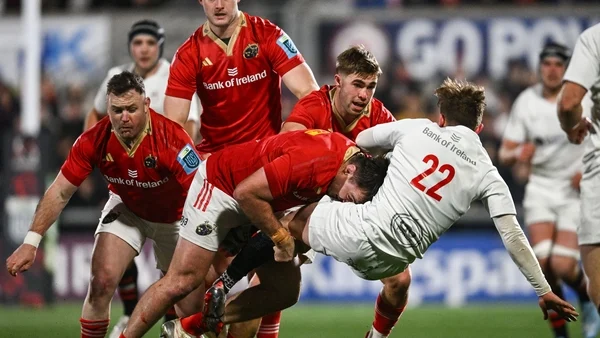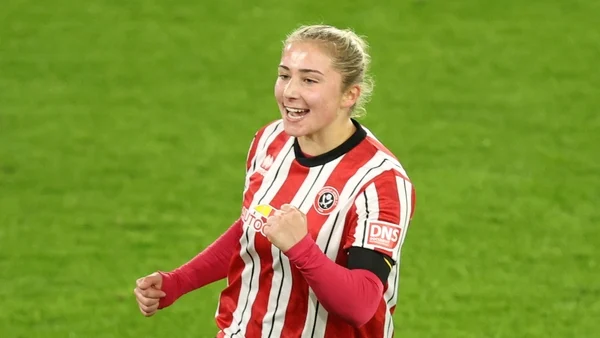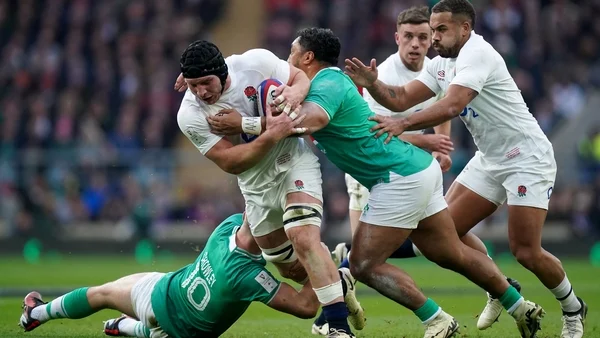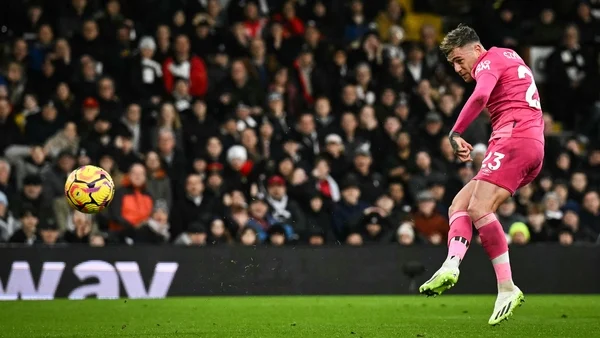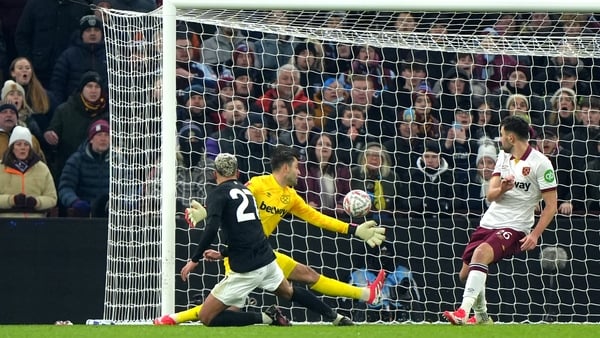Having conceded 17 penalties in their Champions Cup defeat to Castres just over a week ago, there would have been a big focus on discipline on the Munster training pitch last week.
By the eighth minute in Belfast on Friday night, Munster had already been whistled four times by referee Ben Whitehouse, and they would go on to give away another hefty penalty count – 16 in total.
The statistics from Friday's game at Kingspan Stadium make for bizarre reading. Munster made 291 tackles, just under 200 more than Ulster. They lived off 30% possession and 26% territory, lost the penalty count 16-7, while they won just two turnovers compared to eight for Ulster.
Despite all of the above, Munster won 22-19, and brought a bonus-point back to Limerick.
Before they got on the bus home, Munster’s interim head coach Ian Costello said they would let their smash-and-grab win settle before they started to pick apart why they had to go and win it that way.
But the province’s head of rugby operations admitted his side flew too close to the wind with their penalty count, something that will have to be "infinitely better" when they welcome Leinster to Thomond Park on Friday.
"We had two headline areas that we focused on [before the game] and discipline was the first," he said.
"Ulster are no different, they are so good, they have a good maul and pick-and-go game and we played completely into their hands.
"A lot of that is controllable. Ben [Whitehouse] is a very technical referee and we gave him really easy opportunities to penalise us at times.
"There’s a couple of things to that, one, if we had the ball more often we won’t get pinged, so we didn’t hold onto the ball as well as we could have so we put ourselves under a lot of pressure.
"It’s something we have to address."
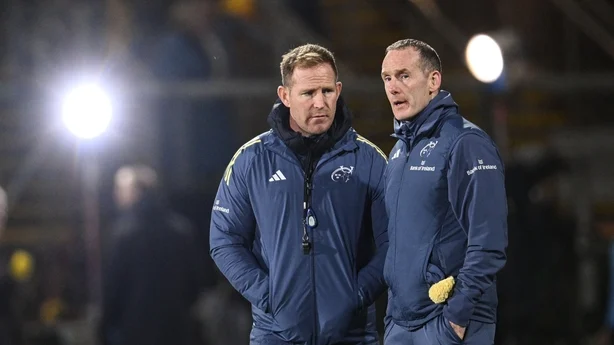
As Costello pointed out, the sheer volume of possession retained by Ulster had a big say in the high penalty count.
However, hooker Niall Scannell was quick to point out that their poor discipline was offset by an impressive defence, which made just under 300 tackles – 35 of which were made by Gavin Coombes.
"I have to say I really do think it was just the stress they put us under," Scannell said.
"They held possession for long periods. They didn’t do anything flash, they just picked and went numerous times, and just stressed us and stressed us.
"We did really well to fight them off for a good while but naturally, with pressure, fellas have to make decisions to try and make turnovers and stuff.
"We held them up a number of times as well, which I thought was really impressive, but unfortunately a couple of them were on the back of already giving away a penalty, so that just added more pressure.
"It’s hard to break that cycle but I think eventually when we did, the backs let loose there on that right edge. They got us out of trouble.
"So, we both probably did our part in terms of the forwards standing strong and the backs really moving the chains to get us out of that 22."
Scannell, who was captain on the pitch in the final few minutes, says while there were large elements of the performance they will look back at in frustration, their ability to execute when they needed to in the final three minutes says a lot about his team’s mentality.
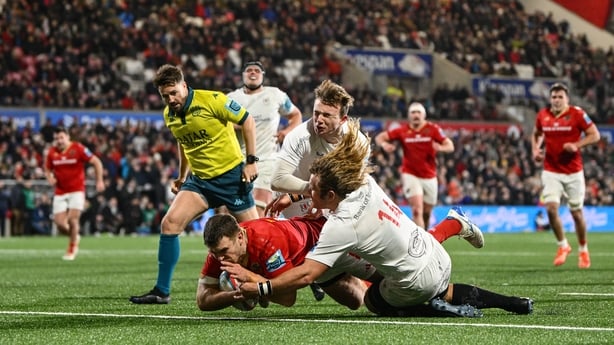
"My message after the third try was that we had made them work really hard to score it. It’s never good to concede a try but I think we defended about four mauls and then we went into prolonged try-line defence.
"I think it takes real conviction to do that under pressure in an environment like that to get us over the line for a score.
"That probably showed our mentality in terms of we knew we had to win. It wasn’t going to be enough to come up and get a losing bonus point," he added.
The province are likely to be without Alex Nankivell for their meeting with Leinster on 27 December.
The New Zealander was injured in the incident which led to Tom O’Toole’s first half red card, although, Costello said the early indications are that Nankivell suffered a hamstring injury, rather than a knee issue.
"It wasn’t his knee. That’s a good sign, as that’s generally the first concern.
"It was more around his hamstring. I have no idea how bad, but the instinct would be that it injured a knee, but [thankfully] it didn’t."
